Nigerian communication teachers and practitioners under the aegis of the Consortium of Nigerian Communication Experts (CoNCE) on Saturday, March 25, listed 14 major challenges with the just-concluded presidential election.
They concluded that many things went wrong, although there were some positive outcomes as well.
Join our WhatsApp ChannelREAD ALSO: ZOOM: Nigerian Communication Experts Set For Post-election Assessment Today
The experts, who featured 12 leaders of professional bodies and regulatory agencies in the Communication sector as guest speakers, critically and objectively analyzed the recent presidential election campaigns and the results of the voting. They resolved that there were at least 14 major deficits that that must be addressed in future electioneering campaigns and elections.
224 registered to attend the Assessment workshop as participants on Zoom.
Among the things that were adjudged to have gone wrong in the lead-up to the presidential election were:
- Divisive, unethical, and unprofessional communication campaign strategies, tactics, and messages that created unnecessary tension.
- Overemphasis on religion and ethnicity and the exploitation of personal and group identify in appealing to supporters.
- The unnecessary denigration of individual presidential candidates, their character, and personality.
- Overpromising on the preparedness of the electoral institutions, especially INEC, which had assured the government and people of its absolute preparedness for successful conduct of free and fair elections.
- The negative influence of money in buying votes and bribing electoral officers.
- The unexpected decision of the Central Bank of Nigeria (CBN) to introduce new Naira notes within a very short time.
- The use of politicians instead of trained professional communicators as spokespersons for some of the political parties.
- And many others.
Relating to the conduct of voting in the presidential election, the transmission, and the eventual announcement of the final results, the participants observed as follows:
- INEC failed to live up to the voters’ expectations because of the delays in the delivery of voting materials in some centres.
- Compared to previous Nigerian elections, the conduct of this election was generally peaceful in spite of some flashpoints of violence, voter intimidation, and under-age voting.
- The much-publicized benefits of the new technologies of BVAS and iRev were not realized due to man-made errors that could have been avoided.
- Although the parties produced well-thought-out and colorfully designed manifestos, they did not find much use for these in the actual media campaigns because of their penchant for non-issues and innuendos rather than specific programs.
- In spite of the failures, there were free and fair voting and accurate reporting of results in many centres.
- The final results, as announced by INEC, showed that the major political parties performed along the same old traditional cleavages of religion, region, and ethnicity, even with the emergence of a third party that seemed to appeal more to the youths.
5 Recommendations From CONCE:
The participants, therefore, recommended that:
- Political parties should appoint spokespersons who are experienced communication professionals, and as much as possible, should use only duly registered Nigerian advertising and public relations agencies.
- INEC’s communication must improve its capacity to provide adequate public enlightenment and education on voting procedures to avoid such calamitous failures in future elections.
- INEC and the other information and communication organs of government, especially the National Orientation Agency (NOA) must collaborate closely and be guided by the public interest.
- The regulation of election campaign advertising must be sustained and the Advertising Regulatory Council of Nigeria (ARCON), as both a government agency and a body created to propagate the ethical conduct of advertising, should be fully empowered to discharge its functions.
- Greater use of communication professionals in all aspects of election campaigns is necessary for the attainment of desirable communication results in elections and subsequently in governance.
The 12 Speakers who extensively analysed the issues:
The assessment workshop – the fifth in the series of communication engagements that were designed to examine the various uses of communication in the 2023 election cycle – had 12 speakers representing different organizations, including Ms. Tolulope Olorundero of the Nigerian Institute of Public Relations (NIPR) and Nigerian Women in Public Relations; Professor Abdullahi Bashir, President, African Council for Communication Education (ACCE) and Ms. Bunmi Oke, Past-President, Association of Advertising Agencies in Nigeria (AAAN).
Other speakers include:
- Mrs. Margaret Olele, CEO/General Secretary, Nigerian American Business Council.
- Professor Lai Oso, Ex-President, Association of Communication Scholars and Practitioners of Nigeria (ACSPN).
- Mr. Chido Nwakanma, President, International Association of Business Communicators (IABC).
- Mr. Emmanuel Ajufo, President, Outdoor Advertising Association of Nigerian (OAAN).
- Mr. Adewale Adeniyi, Vice President, NIPR.
- Comrade Isiguzo, President, Nigerian Union of Journalists and African Journalists Association.
- Dr. Lekan Fadolapo, Director General, Advertising Regulatory Council of Nigeria (ARCON).
- Dr. Everest Amaefule, Business Editor, The Punch.
- Professor Mande, Dean, Nigerian National Open University Abuja.
About the CONCE
The Consortium of Nigerian Communication Experts (CONCE) is the umbrella network of academic and professional communication associations and individual patriotic Nigerians who are committed to the purposeful uses of communication in all its aspects and ramifications to promote sustainable social development through research, education, capacity building, and advocacy. Members are nonpartisan and have no ideological or political party affiliation


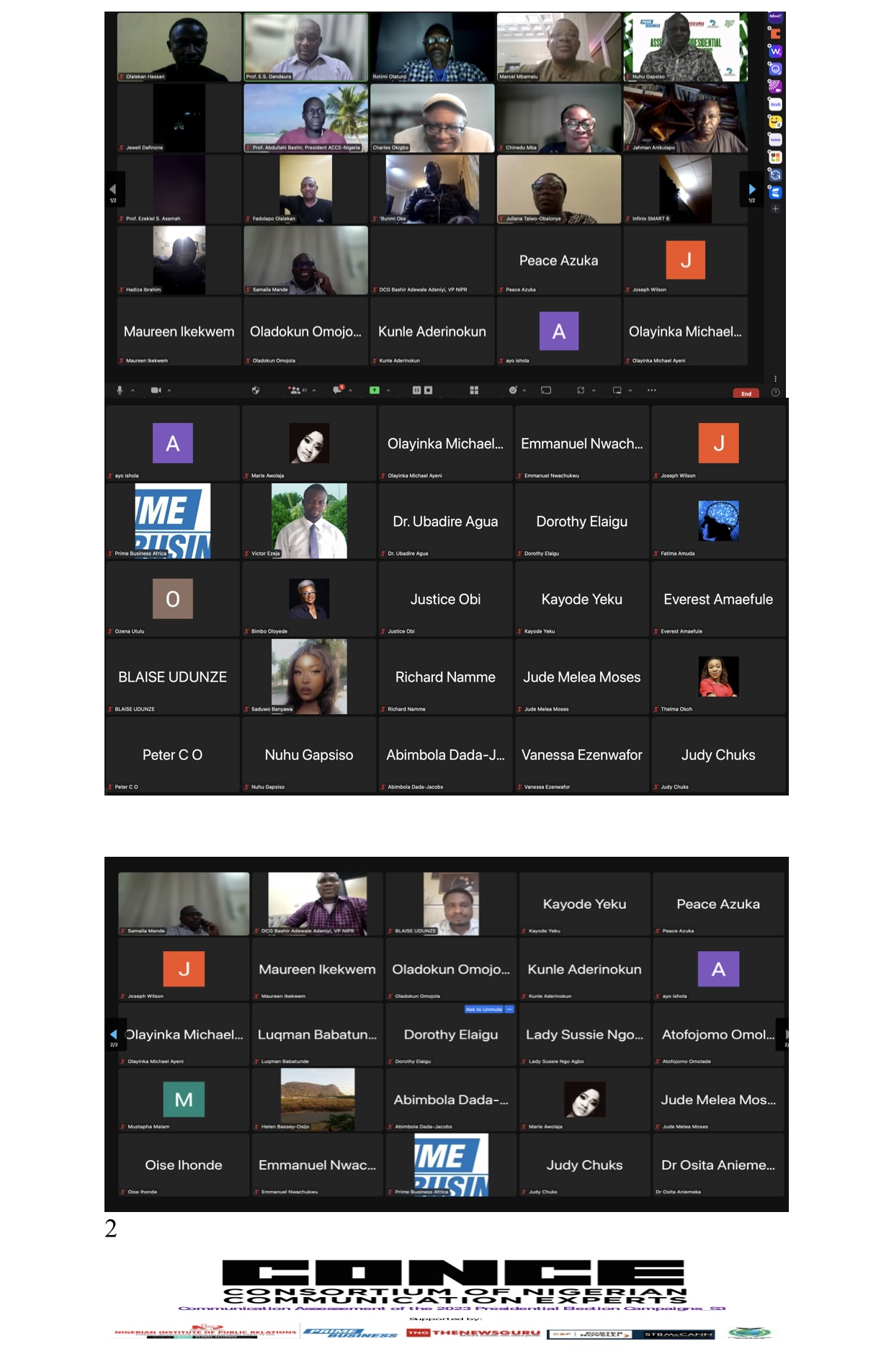
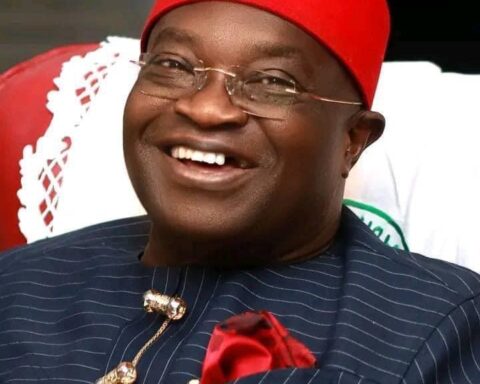
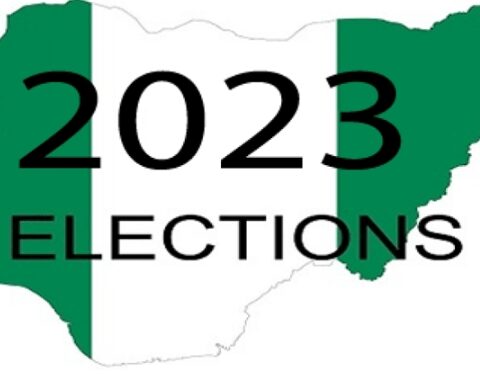
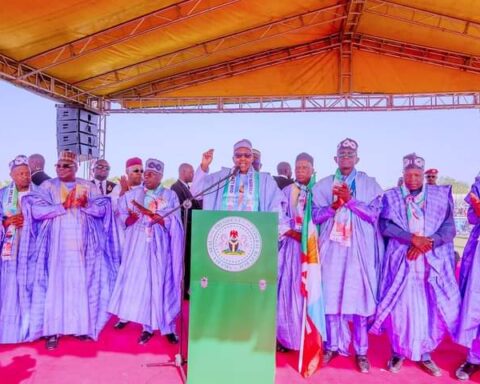
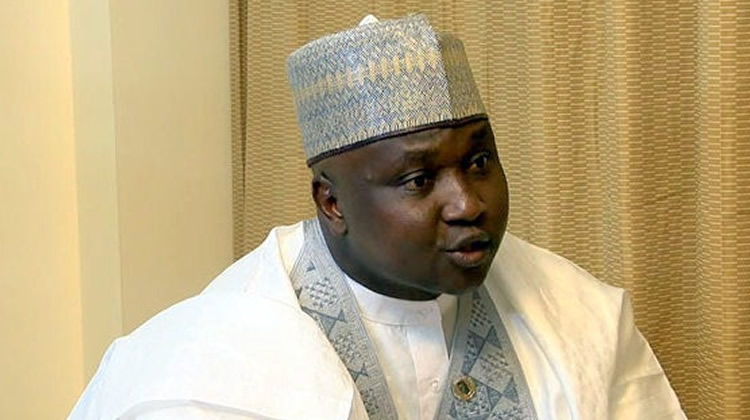
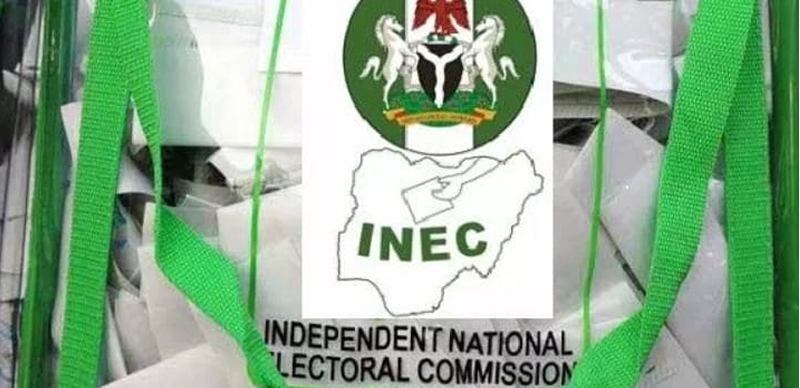
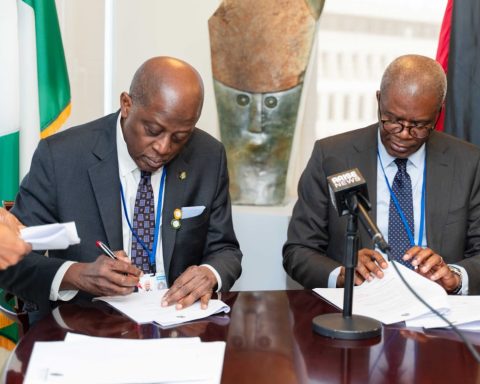
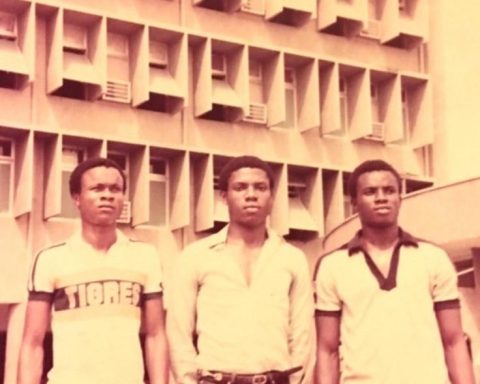
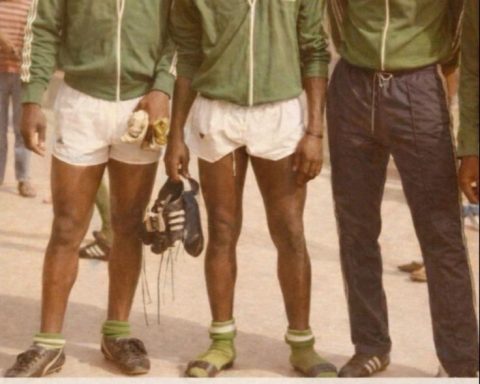
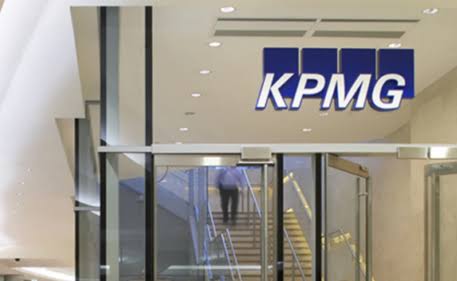
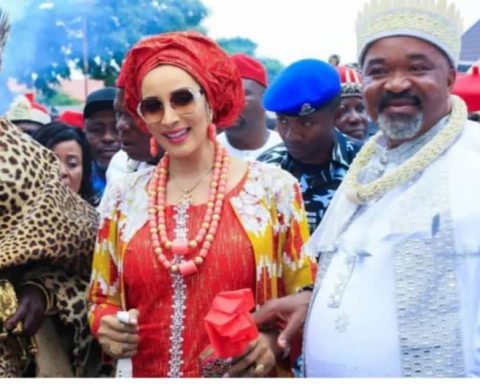

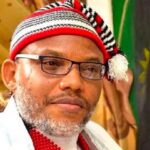
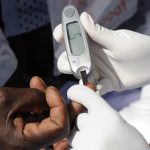
…….on Saturday, March 25, listed……
When today is march 7.
I thought it’s not yet the date or i don’t comprehend what I’m reading.